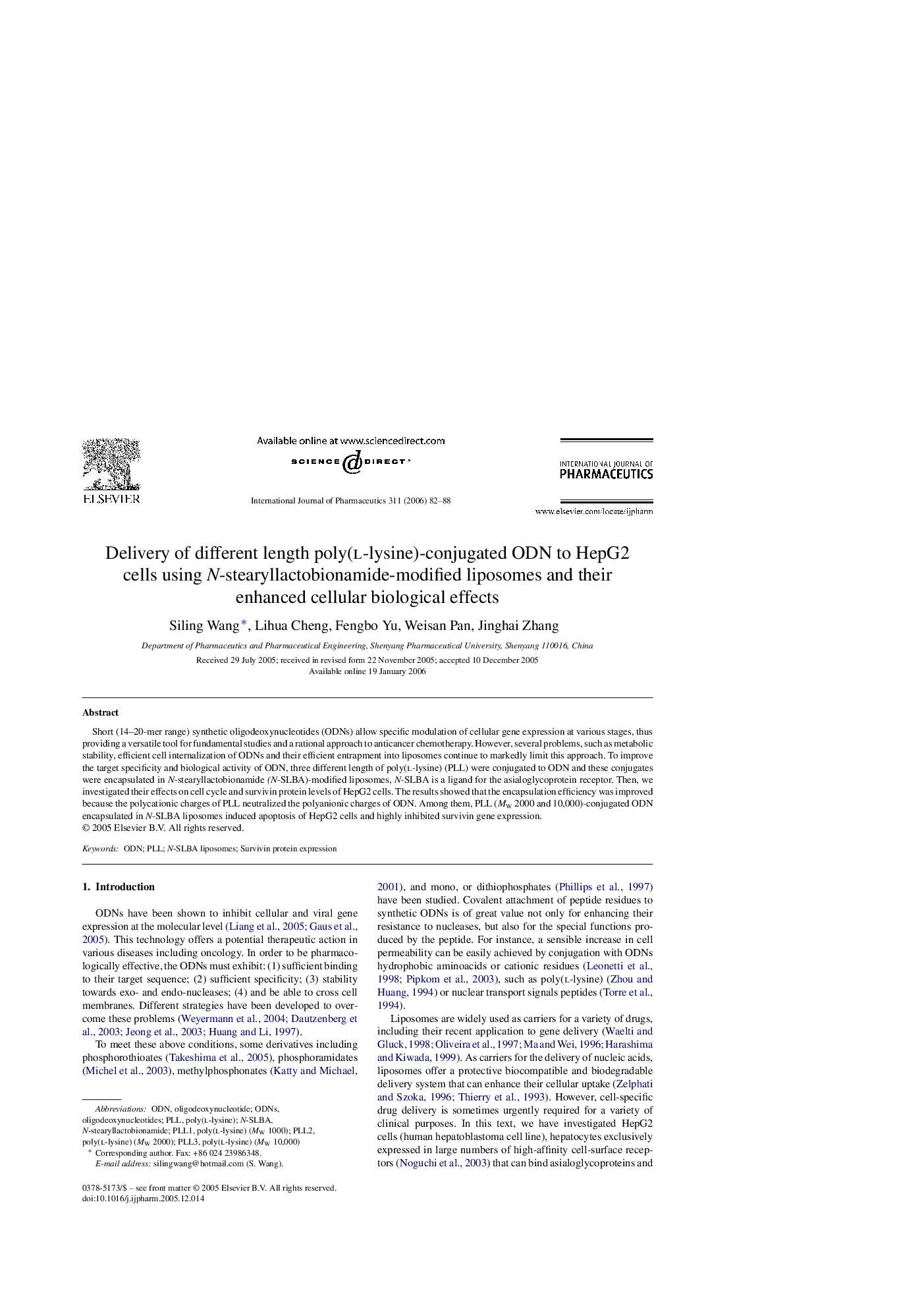| Article ID | Journal | Published Year | Pages | File Type |
|---|---|---|---|---|
| 2507060 | International Journal of Pharmaceutics | 2006 | 7 Pages |
Short (14–20-mer range) synthetic oligodeoxynucleotides (ODNs) allow specific modulation of cellular gene expression at various stages, thus providing a versatile tool for fundamental studies and a rational approach to anticancer chemotherapy. However, several problems, such as metabolic stability, efficient cell internalization of ODNs and their efficient entrapment into liposomes continue to markedly limit this approach. To improve the target specificity and biological activity of ODN, three different length of poly(l-lysine) (PLL) were conjugated to ODN and these conjugates were encapsulated in N-stearyllactobionamide (N-SLBA)-modified liposomes, N-SLBA is a ligand for the asialoglycoprotein receptor. Then, we investigated their effects on cell cycle and survivin protein levels of HepG2 cells. The results showed that the encapsulation efficiency was improved because the polycationic charges of PLL neutralized the polyanionic charges of ODN. Among them, PLL (MW 2000 and 10,000)-conjugated ODN encapsulated in N-SLBA liposomes induced apoptosis of HepG2 cells and highly inhibited survivin gene expression.
